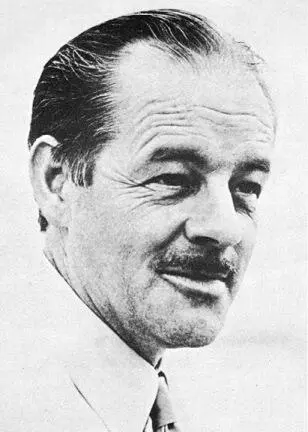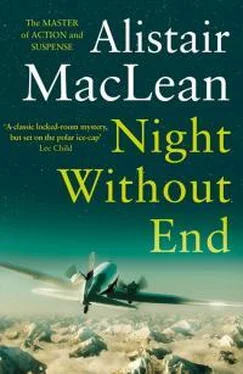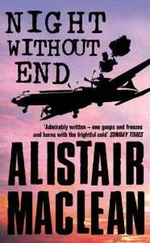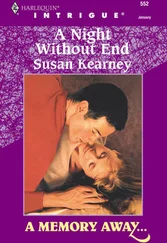Алистер Маклин - Night Without End
Здесь есть возможность читать онлайн «Алистер Маклин - Night Without End» — ознакомительный отрывок электронной книги совершенно бесплатно, а после прочтения отрывка купить полную версию. В некоторых случаях можно слушать аудио, скачать через торрент в формате fb2 и присутствует краткое содержание. Год выпуска: 101, Жанр: Боевик, Триллер, на английском языке. Описание произведения, (предисловие) а так же отзывы посетителей доступны на портале библиотеки ЛибКат.
- Название:Night Without End
- Автор:
- Жанр:
- Год:101
- ISBN:нет данных
- Рейтинг книги:4 / 5. Голосов: 1
-
Избранное:Добавить в избранное
- Отзывы:
-
Ваша оценка:
- 80
- 1
- 2
- 3
- 4
- 5
Night Without End: краткое содержание, описание и аннотация
Предлагаем к чтению аннотацию, описание, краткое содержание или предисловие (зависит от того, что написал сам автор книги «Night Without End»). Если вы не нашли необходимую информацию о книге — напишите в комментариях, мы постараемся отыскать её.
An airliner crashes in the polar ice-cap. In temperatures 40 degrees below zero, six men and four women survive. But for the members of a remote scientific research station who rescue them, there are some sinister questions to answer – the first one being, who shot the pilot before the crash?
Night Without End — читать онлайн ознакомительный отрывок
Ниже представлен текст книги, разбитый по страницам. Система сохранения места последней прочитанной страницы, позволяет с удобством читать онлайн бесплатно книгу «Night Without End», без необходимости каждый раз заново искать на чём Вы остановились. Поставьте закладку, и сможете в любой момент перейти на страницу, на которой закончили чтение.
Интервал:
Закладка:
Alistair MacLean
NIGHT WITHOUT END
1959
About the Author

Alistair MacLean, the son of a Scots minister, was brought up in the Scottish Highlands. In 1941, at the age of eighteen, he joined the Royal Navy. After the war he read English at Glasgow University and became a schoolmaster. The two and a half years he spent aboard a wartime cruiser were to give him the background for HMS Ulysses, his remarkably successful first novel, published in 1955. He is now recognised as one of the outstanding popular writers of the 20th century, the author of twenty-nine worldwide bestsellers, many of which have been filmed, including The Guns of Navarone, Where Eagles Dare, Fear is the Key and Ice Station Zebra. In 1983, he was awarded a D.Litt. from Glasgow University. Alistair MacLean died in 1987.
To Bunty
One
MONDAY Midnight
It was Jackstraw who heard it first – it was always Jackstraw, whose hearing was an even match for his phenomenal eyesight, who heard things first. Tired of having my exposed hands alternately frozen, I had dropped my book, zipped my sleeping-bag up to the chin and was drowsily watching him carving figurines from a length of inferior narwhal tusk when his hands suddenly fell still and he sat quite motionless. Then, unhurriedly as always, he dropped the piece of bone into the coffee-pan that simmered gently by the side of our oil-burner stove – curio collectors paid fancy prices for what they imagined to be the dark ivory of fossilised elephant tusks – rose and put his ear to the ventilation shaft, his eyes remote in the unseeing gaze of a man lost in listening. A couple of seconds were enough.
‘Aeroplane,’ he announced casually.
‘Aeroplane!’ I propped myself up on an elbow and stared at him. ‘Jackstraw, you’ve been hitting the methylated spirits again.’
‘Indeed, no, Dr Mason.’ The blue eyes, so incongruously at variance with the swarthy face and the broad Eskimo cheekbones, crinkled into a smile: coffee was Jackstraw’s strongest tipple and we both knew it. ‘I can hear it plainly now. You must come and listen.’
‘No, thanks.’ It had taken me fifteen minutes to thaw out the frozen condensation in my sleeping-bag, and I was just beginning to feel warm for the first time. Heaven only knew that the presence of a plane in the heart of that desolate ice plateau was singular enough – in the four months since our IGY station had been set up this was the first time we had had any contact, however indirectly, with the world and the civilisation that lay so unimaginably beyond our horizons – but it wasn’t going to help either the plane or myself if I got my feet frozen again. I lay back and stared up through our two plate glass skylights: but as always they were completely opaque, covered with a thick coating of rime and dusting of snow. I looked away from the skylights across to where Joss, our young Cockney radioman, was stirring uneasily in his sleep, then back to Jackstraw.
‘Still hear it?’
‘Getting louder all the time, Dr Mason. Louder and closer.’
I wondered vaguely – vaguely and a trifle irritably, for this was our world, a tightly-knit, compact little world, and visitors weren’t welcome – what plane it could be. A met. plane from Thüle, possibly. Possibly, but unlikely: Thule was all of six hundred miles away, and our own weather reports went there three times a day. Or perhaps a Strategic Air Command bomber testing out the DEW-line – the Americans’ distant early warning radar system – or even some civilian proving flight on a new trans-polar route. Or maybe some base plane from down by Godthaab–
‘Dr Mason!’ Jackstraw’s voice was quick, urgent. ‘It’s in trouble, I think. It’s circling us – lower and closer all the time. A big plane, I’m sure: many motors.’
‘Damn!’ I said feelingly. I reached out for the silk gloves that always hung at night above my head, pulled them on, unzipped my sleeping-bag, swore under my breath as the freezing air struck at my shivering skin, and grabbed for my clothes. Half an hour only since I had put them off, but already they were stiff, awkward to handle and abominably cold – it was a rare day indeed when the temperature inside the cabin rose above freezing point. But I had them on – long underwear, woollen shirt, breeches, silk-lined woollen parka, two pairs of socks and my felt cabin shoes – in thirty seconds flat. In latitude 72.40 north, 8000 feet up on the Greenland ice-cap, self-preservation makes for a remarkable turn of speed. I crossed the cabin to where no more than a nose showed through a tiny gap in a sleeping-bag.
‘Wake up, Joss.’ I shook him until he reached out a hand and pushed the hood off his dark tousled head. ‘Wake up, boy. It looks as if we might need you.’
‘What – what’s the trouble?’ He rubbed the sleep from his eyes and stared up at the chronometer above his head. ‘Midnight! I’ve been asleep only half an hour.’
‘I know. Sorry. But get a move on.’ I recrossed the cabin, passed by the big RCA transmitter and stove, and halted in front of the instrument table. The register showed the wind ENE, velocity 15 knots – near enough 17 miles per hour, on a night like this, with the ice-crystals and drift lifting off the ice-cap, clogging and slowing up the anemometer cups, the true speed was probably half as much again. And the pen of the alcohol thermograph was running evenly along the red circle of 40 degrees below zero – 72 degrees of frost. I thought of the evil combination of these two factors of wind and cold and felt my skin crawl.
Already Jackstraw was silently climbing into his furs. I did the same – caribou trousers and parka with reindeer fur trimmed hood, all beautifully tailored by Jackstraw’s wife – sealskin boots, woollen mittens and reindeer gloves. I could hear the plane quite clearly now, and so too, I could see, did Joss. The deep even throb of its motors was plain even above the frantic rattling of the anemometer cups.
‘It’s – it’s an aeroplane!’ You could see that he was still trying to convince himself.
‘What did you think it was – one of your precious London double-deckers?’ I slipped snow-mask and goggles round my neck and picked up a torch from the shelf beside the stove: it was kept there to keep the dry batteries from freezing. ‘Been circling for the past two or three minutes. Jackstraw thinks it’s in trouble, and I agree.’
Joss listened.
‘Engines sound OK to me.’
‘And to me. But engine failure is only one of a dozen possible reasons.’
‘But why circle here?’
‘How the devil should I know? Probably because he can see our lights – the only lights, at a guess, in 50,000 square miles. And if he has to put down, which God forbid, he stands his only chance of survival if he puts down near some human habitation.’
‘Heaven help them,’ Joss said soberly. He added something else, but I didn’t wait to hear. I wanted to get up top as quickly as possible.
To leave our cabin, we had to use a trap-door, not an ordinary door. Our cabin, a prefabricated, sectioned structure that had been hauled up from the coast on tractor sleds during the month of July was deep-sunk in a great oblong hole that had been gouged out from the surface of the ice-cap, so that only the top few inches of its flat roof projected above ground level. The trap-door, hinged at both ends so that it could open either upwards or downwards, was reached by a short steep flight of steps.
Читать дальшеИнтервал:
Закладка:
Похожие книги на «Night Without End»
Представляем Вашему вниманию похожие книги на «Night Without End» списком для выбора. Мы отобрали схожую по названию и смыслу литературу в надежде предоставить читателям больше вариантов отыскать новые, интересные, ещё непрочитанные произведения.
Обсуждение, отзывы о книге «Night Without End» и просто собственные мнения читателей. Оставьте ваши комментарии, напишите, что Вы думаете о произведении, его смысле или главных героях. Укажите что конкретно понравилось, а что нет, и почему Вы так считаете.










